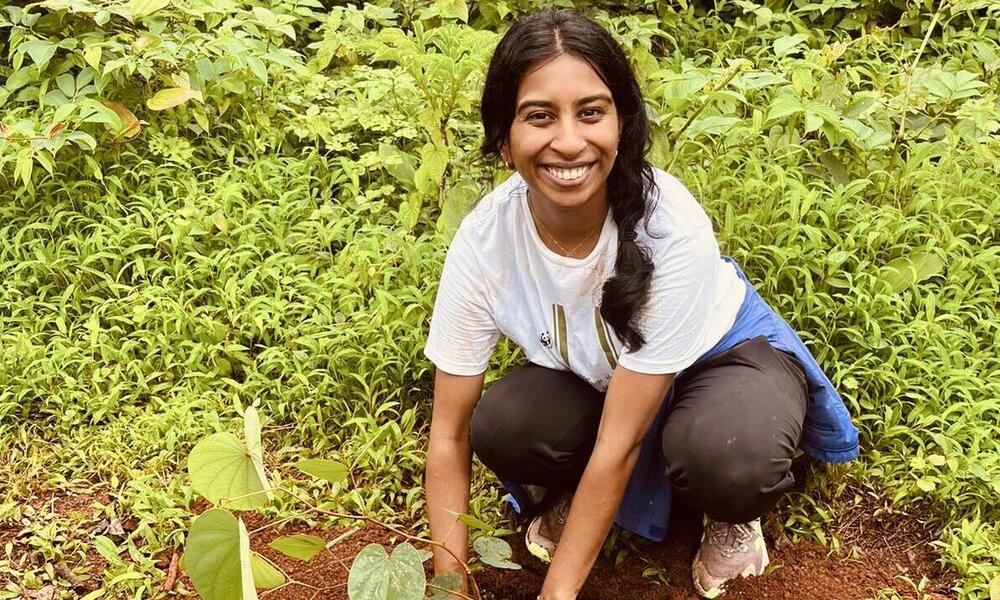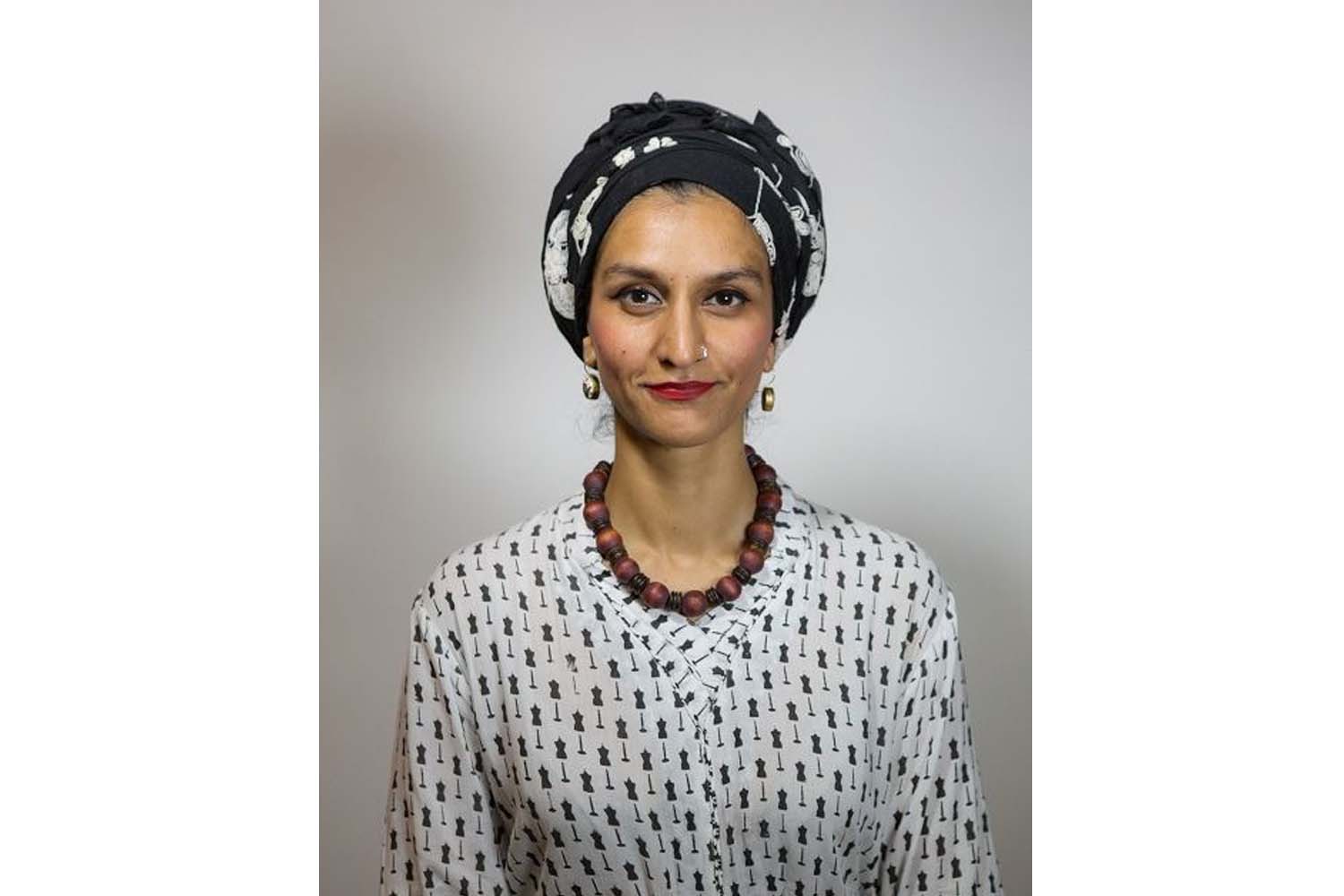- Didihood
- Posts
- DIDIHOOD ~ Issue 85
DIDIHOOD ~ Issue 85
Meet the Didi: Lakna Edirisinghe
Welcome to summer, Didis!
We want to congratulate this year’s recipients of the 2025 Didi Creative Fund! In collaboration with Tamil Women Rising and the South Asian Women’s Collective, the community-funded grant highlights South Asian and Tamil creatives in Canada who are doing unique work. A huge congratulations to: Saranya Nemanathan, Aman Gill, Nimra Bandukwala, Anna Chauhan, Tania Habib and Stuti Srivastava.
If you are interested in donating to next year’s fund, email us!
Meet the Didi
This month we speak with Lakna Edirisinghe, a Sri Lankan-Canadian writer and producer based out of Toronto. Since breaking into the industry, she has written for a wide variety of television shows, including hour-long law dramas like Diggstown, animated shows like Pinecone and Pony and educational kid’s comedies like Odd Squad, for which she was nominated for an Emmy. Most recently she returned as a writer and co-executive producer on season 2 of Late Bloomer.

Behind the scenes of Late Bloomer season 2. Credit Anthony Galatianos.
Tell us about your journey in writing and producing for television. How did this all start and what pulled you in?
I always knew I wanted to make television. TV has a special place in our hearts and our homes in a way that film doesn't. We grow with TV and the characters we see on screen. They go through things while we go through things, and we can see mirrors of ourselves through the wealth of characters and storylines and lenses that TV can offer. Just like behind the scenes, with TV, the power lies in the ensemble. How do we affect each other - how do our stories interconnect and overlap and impact each other? TV is an exploration of all these things. I think as artists, we are often pulled to many different mediums/platforms/avenues to make art. But we have to follow the path that is most fulfilling and enjoyable for us to do. Writing in other mediums can be very isolating and stationary. Whereas writing and producing television is full of collaboration and community and action, which is very much my speed. It's thrilling and athletic, yet heady and introspective at the same time. It's pressure-filled and all-important feeling sometimes, but it's also just TV - it's fun! We're making people laugh, cry, think, feel, escape, learn, grow, reflect, and ultimately just be entertained.
We are big fans of season 2 of Late Bloomer and recently saw the yoga episode you wrote — tell us more about this experience.
Writing for TV is interesting because we come up with the season's stories as a group in the writer's room, and then usually you write the episode that will have your name on it, then go away and wait for the episode to air — only to discover so much has changed from your script. But when you also produce a show in the capacity of a writer/creative producer, you get to work on every script all the way through production: crafting the stories and dialogue, and problem solving the more production-oriented things with story as the driving factor.
With a show like Late Bloomer, each episode is one piece of the season's greater puzzle. So it's always an exciting process to see which episode will fall into your official portfolio, because ultimately, it's the place you get to put the most of your personal stank. The Yoga episode falls right in the middle of the season, so contextually it needed to accomplish a sort of peak/turn in the character arcs. We knew that in order to show the full scope of a relationship, but with only a handful of real estate to do so, we'd need to be able to sit in scenes with our characters and let them hash it out. Our lead couple needed to overcome something together in order to make them stronger, while the audience can see their differences starting to pull them apart. Yoga became the vehicle to get into that, and to get into the nuances of first-generation South Asian perspectives.
Yoga might be an inherently South Asian thing, but its bastardization impacts us at different rates, which can be polarizing and confronting. It was a perfect opportunity for us to have our characters confront something together and see how they come out of it. Of course, it's super fun to write the tropes that we see with the appropriation of Yoga in the west (I mean, puppies???), but really the fun and games of it all is just a way to launch us into greater conversations.

Behind the scenes of Late Bloomer season 2. Credit Anthony Galatianos.
. As a Sri Lankan woman navigating the industry, how do you bring yourself or your experience to your work?
It's interesting, I grew up meeting people and having this immediate need to tell them I'm not Indian. I knew they'd assume I was, and wanted to get ahead of it. In this industry, as a South Asian, often I get put up for gigs that have to do with either the South Asian experience at large, or just straight up the Indian experience. So I'm "loaning" out my voice to yet another group I'm not technically part of. Of course there's lots of cultural cross-over
Truthfully, most people don't even recognize my ethnicity by name, and are surprised to hear we are Buddhist, so it's definitely important that whatever room I'm in, people learn about us. It's my pleasure to put us on the map, and it's all worth it when a Sri Lankan person reaches out to me to tell me they felt seen because of my work. And these days I see more Sri Lankan artists popping up. It makes me so happy to know we're out here doing the thang.
Late Bloomer was so special because it was interested in highlighting the differences of South Asian experiences. Chippy is a Sri Lankan Tamil character. Understanding the Sri Lankan diaspora is to know that the SL Tamil experience is very crucial to feature, especially in a show set in the GTA. We even featured a Sinhalese character this season, and it's the first time you've ever seen it on Canadian screens. I put the actress Oshini in my grandmother's Sri Lankan Batik dress, so it was really cool to be able to really put myself and my ancestors on screen like that.

Behind the scenes of Late Bloomer season 2. Credit Anthony Galatianos.
But the thing is, as a writer, I am ALWAYS writing different perspectives. That's the point. That's the game. I'm writing all kinds of characters. All racial backgrounds of people, women, non-binary folk, men, old, young, middle-aged, working class, bourgeoisie, LGBTQ+, differently-abled etc. If I was only allowed to write for exactly my own background, then I wouldn't have a job. The point of writing is to show the audience that everyone can be relatable no matter who they are. So I'd say, I definitely carry my Sri Lankan-ness with me everywhere I go, and I know that there's more putting us on the map to be done, but I'm also confident that with time I will be able to do that. Good thing careers are long.
You also have a wide range of writing experience, for many types of genres including kids' content and dramas. How are you able to adapt to so many types of writing?
When I was doing my post-grad in TV writing/producing at Humber, I found that they were constantly trying to get us to decide which lane was ours. And I was constantly refusing to choose, instead insisting on doing every class. To me, writing is writing. We start the story, and we don't know how it will end. But we want to know!
When I started in this industry, I learned that there's lots of work in kids and animation. It was a perfect place to tune my craft — because you can't lean on your favourite adult writing tools. You can't swear or discuss adult things. You can't use pop culture references or political references. You can't be too scary or serious. But this challenge only makes you a stronger writer, because without those things to lean on, you're forced to confront what the story is really about. You have to actually be funny, not just raunchy or sly. So, I think fondly of my time in those other genres. They all helped me be a better writer in the present. And each genre is of equal value in my opinion. It just depends on what makes you most excited to write.
What would be your advice to other women who are interesting in writing for television? How should they start?
My advice specifically for writers is to build their portfolio of samples. I meet a lot of people who are interested in writing but are timid to even start. Once you're working, there's constant writing and re-writing, draft after draft. It's a muscle, and you have to exercise it. You can't be afraid of the page. You have to get used to trying things, taking notes, cutting the things you thought were precious, and so on. These are the real tangible skills that you'll need. And then, when you find yourself in front of someone who is open to working with you, you'll have a ready body of work to hand over for them to read you and like you, and ultimately — hire you!
But of course, the most important piece of advice I could give women who are trying to get started is to stand in your confidence. Having a portfolio of samples (specs and originals of whichever genres you want to work in) is important, but you have to be armed with confidence because you'll come across a lot of people who subconsciously think you're not qualified for the job because of who you are. The deep-rooted misogynistic and racist biases are there, so don't give them any more excuses to not believe in you.
What are you working on next? What can we look forward to?
To be honest, after almost burning out, I'm finally taking some vacation time to travel. I'm a big believer in having life-experiences and not over thinking whether or not I'm writing enough. Usually, I'll have those experiences and then without realizing, I'll use that time to marinate on a concept or idea I've been working on. My latest work in development really dives into exposing the structure of traditional marriage and how it ultimately just traps women. I marinated on it for a while after going through a divorce and having my own evolutions of thought. So I'd say, even though that's a while away from being seen, it's what I'm most looking forward to putting out.
What we’re reading:
What we’re watching / listening to:
Didi Rebecca Ablack is featured in the new Netflix film, Fear Street: Prom Queen.
American actor Amita Rao is featured in the new television series, Adults.
Didi Sadaf Ahsan co-hosts a new podcast called Eat Your Heart Out — conversations on dismantling outdated ideas of romance, redefining friendship and intimacy, and cutting through societal bullshit to make space for what actually matters.
— Arti Patel
Issue 85
Follow us on Instagram, Twitter and Facebook
[email protected]










